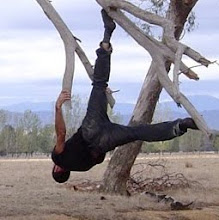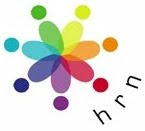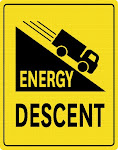
Friday, December 19, 2008
Cuba's eggs
Cuba, one of our chooks, went broody this week. There are two things you can do for a broody hen. Either give her some fertilised eggs to incubate over 21 days, or place her in a cage in full sunlight with plenty of air, clean water and food.


Sunday, December 14, 2008
An angry post cheered up by a harvest of garlic, freshly washed
The one thing that everybody wants is to be free...not managed, threatened, directed, restrained, obliged, fearful, administered, they want none of these things they all want to feel free...they do not want to be afraid not more than is necessary in the ordinary business of living... Gertrude Stein, 1943
The daughter of the businessman, the income to write, the ordinary business of privilege; ever expanding post-war growth, ever expanding freedoms: cars, white-goods, confectionary, packaging, holidays; ever expanding art and art memorials; ever-expanding construction of culture well beyond the capacity of the landbase. Impermanent toxiculture; the mass market, the small secondary markets of the bourgeoisie: the snobs, the aspirants, the collectors, the publishers, the biography factory; ever-expanding obsessions of the civilised; utterly pre-tending to life.
"The world is round", Stein tells us, "and you can go on it round and round", she adds, as she did, as we do now, up and up, down and down, around and around, adding and expanding, unchecked and ill-managed, unbridled freedom, unlimited population, unleashed psychosis.
We have had 65 years of run-away capitalism, and here awaits us the blurred edge of run-away climate change: gas chambers lit for a new era holocaust by industry's furnaces and our desires.
We have had 65 years of run-away capitalism, and here awaits us the blurred edge of run-away climate change: gas chambers lit for a new era holocaust by industry's furnaces and our desires.

Tuesday, December 9, 2008
Saturday, December 6, 2008
Young people and the Yam daisy
This morning Barry Golding, from the University of Ballarat, led a group of us on a walk from inside the crater at Lalgambook (Mt Franklin) to Larnebarramul (Franklinford). Barry is a font of anthropological, geographical and archeological information dating from the earliest volcanic activity 20 million years ago, to more recent history, specifically that of the Djadjawurrung.

The other half of the day I spent at the senior citizens rooms behind Daylesford Town Hall with another group of people. The issue of heritage was a major sticking point with us, some people thinking that social heritage begins with Cornish miners. We were attempting to agree on a way forward for the contentious community reserve which adjoins the equally contentious youth (skate) park. On my agenda was public food, and I was sucessful in having fruit and nut trees (20-30%) considered as a recommendation for the final planting scheme.

Among the day's highlights was learning about the murnyong (Yam daisy). The murnyong was a major staple tuber that the Djadjawurrung lived off for tens of thousands of years, and which still grows wild in the area and across central Victoria. Barry had collected seed earlier in the morning and gave some out. I'm looking forward to propagating our five seeds. Another highlight was working with others of wide-ranging opinions to develop a common objective, and potentially the beginnings of a food relocalisation mind-shift, that local council backs on behalf of the community.

The other half of the day I spent at the senior citizens rooms behind Daylesford Town Hall with another group of people. The issue of heritage was a major sticking point with us, some people thinking that social heritage begins with Cornish miners. We were attempting to agree on a way forward for the contentious community reserve which adjoins the equally contentious youth (skate) park. On my agenda was public food, and I was sucessful in having fruit and nut trees (20-30%) considered as a recommendation for the final planting scheme.

Among the day's highlights was learning about the murnyong (Yam daisy). The murnyong was a major staple tuber that the Djadjawurrung lived off for tens of thousands of years, and which still grows wild in the area and across central Victoria. Barry had collected seed earlier in the morning and gave some out. I'm looking forward to propagating our five seeds. Another highlight was working with others of wide-ranging opinions to develop a common objective, and potentially the beginnings of a food relocalisation mind-shift, that local council backs on behalf of the community.
Labels:
Barry Golding,
collective offensive,
Djadjawurrung,
future growing,
Lalgambook (Mt Franklin),
mutual self defence,
occupation,
post-capitalist,
raising boys,
social warming,
Yam daisy (murnyong)
Friday, December 5, 2008
Shredding, gleaning, piling and heaping
Currently I glean most of the material for my composts. Neighbours recently saved a trip to the tip because I pulled up with my wheelbarrow and asked to take the loads away. I often take my wheelbarrow for a walk scavenging for material. Peter O has been getting into the habit of dropping off shredded paper from school (if only I could get hold of the White House's pile right now). We collect horse poo from the nearby horse riding ranch and, as I've mentioned before, we weekly collect the food scrap bins from a nearby cafe. As we have now started to harvest food, we have increased our green waste which, in a closed-cycle ecology, is not really waste at all.
As you can see in the below picture our soil is highly disturbed, largely compacted clay. Intensive mulching, to keep moisture in the soil (which attracts worms who break down the clay), together with intensive composting over the next several years should see a dramatic decrease in water usage.


Labels:
against unburnt fat,
carbon fixing,
collage,
common substance,
composting,
future growing,
humus,
soil improvement
Wednesday, December 3, 2008
The crow and the chook
The eagle, the crow and the bat are the three totems that belong to the local mob – the Loddon tribe of the Djadjawurrung people, a clan of the Kulin nation – local, at least, to where I live.
Last night at a meeting at the Daylesford Town Hall, David Holmgren, co-originator of Permaculture, spoke with climatologist Rob Gell, in relation to the funding of a community-owned wind farm, Hepburn Wind. After their presentations, I asked them whether 6-7 years was a realistic timeframe to make the transition from industrial civilisation to a zero emission, water, energy and food relocalisation system, such as what we are attempting, with permaculture principals, in the Garden of Self Defence. Gell said effectively that yes, 5-10 years is the timeframe for radical change and that runaway climate change will result if we don’t all act significantly within this period. Holmgren went on to add that those who make the transition earlier, especially from oil dependancy, will find it easier than others to adapt because in a culture of high waste there is still so much to glean and reuse when only a few are doing it. When he opened his address, Gell said that he had just met with Penny Wong, Minister for Climate Change and Water, which confirmed for him that those who place their trust in governments (to make the necessary changes) delude themselves.
Government, effectively, is in a war of contradictions with itself. The war goes something like this: good intentions plus millions of dollars of consultancy fees equates to greenwash, while old world industries pressure bureaucrats to retain business as usual in terms of consumption and waste. Last night’s sentiment and permaculture’s general call to arms since the early 1970s suggests that governments are sluggish beasts who cannot act as quickly as we can at a local level.
If we require a system to replace neoliberal capitalism, and I believe we do, then it is indeed Permaculture. Cuba has demonstrated this, albeit an easier task within a socialist country where there is little unburnt fat to start with. Which brings me to an issue that has been bugging me for a number of months, playing out in our garden as I write. Permaculture of course includes chooks as central to any design. Our two chooks are called Dirt and Cuba. Chooks give manure, eggs and companionship while we provide food, protection and a warm bed of straw reciprocally. A family of crows have come to enjoy the pleasures of gleaning the chook food and competing with them for local resources. Our natural inclination has been to frighten them off and protect our chooks' feed. Sound familiar?
Aborigines saw man as sharing a common life-principal with animals, birds and plants. They embraced all these in human social and religious life by establishing totemic relationships between them and people. (A P Elkin, 1967, from The Loddon Aborigines, Edgar Morrison, p.17., private press booklet, 1971, from articles published in the Daylesford Advocate newspaper 1963-1971).The Loddon Aborigines, as anthropologists like David Graeber might suggest, had relations of 'common substance' with the land – a closed-cycle, single-broken-line homeostasis, where the body (as tribe) is contiguous with everything else. Here, the closed-cycle represents the tribal land, a clearly delineated food and water bowl where nothing is wasted, and the single-broken-line represents the necessity for other relations outside of this land.
Within these clearly defined boundaries their hunting rights were ordinarily respected by their neighbours with whom they normally enjoyed friendly relations and a measure of collaboration and inter-marriage. (The Loddon Aborigines, Edgar Morrison, p16., private press booklet, 1971, from articles published in the Daylesford Advocate newspaper 1963-1971).This kind of collaboration can occur because the line is permanently broken. By contrast, the gated-existence model of industrial civilisation – the privatisation, capitalisation and transportation of resources – is represented as a solid double=white=line; a line of brutally imposed impermanent or throwaway culture.
Last night at a meeting at the Daylesford Town Hall, David Holmgren, co-originator of Permaculture, spoke with climatologist Rob Gell, in relation to the funding of a community-owned wind farm, Hepburn Wind. After their presentations, I asked them whether 6-7 years was a realistic timeframe to make the transition from industrial civilisation to a zero emission, water, energy and food relocalisation system, such as what we are attempting, with permaculture principals, in the Garden of Self Defence. Gell said effectively that yes, 5-10 years is the timeframe for radical change and that runaway climate change will result if we don’t all act significantly within this period. Holmgren went on to add that those who make the transition earlier, especially from oil dependancy, will find it easier than others to adapt because in a culture of high waste there is still so much to glean and reuse when only a few are doing it. When he opened his address, Gell said that he had just met with Penny Wong, Minister for Climate Change and Water, which confirmed for him that those who place their trust in governments (to make the necessary changes) delude themselves.
Government, effectively, is in a war of contradictions with itself. The war goes something like this: good intentions plus millions of dollars of consultancy fees equates to greenwash, while old world industries pressure bureaucrats to retain business as usual in terms of consumption and waste. Last night’s sentiment and permaculture’s general call to arms since the early 1970s suggests that governments are sluggish beasts who cannot act as quickly as we can at a local level.
If we require a system to replace neoliberal capitalism, and I believe we do, then it is indeed Permaculture. Cuba has demonstrated this, albeit an easier task within a socialist country where there is little unburnt fat to start with. Which brings me to an issue that has been bugging me for a number of months, playing out in our garden as I write. Permaculture of course includes chooks as central to any design. Our two chooks are called Dirt and Cuba. Chooks give manure, eggs and companionship while we provide food, protection and a warm bed of straw reciprocally. A family of crows have come to enjoy the pleasures of gleaning the chook food and competing with them for local resources. Our natural inclination has been to frighten them off and protect our chooks' feed. Sound familiar?
When German missionaries came to Central Australia they seduced the local tribes into following the teachings of Jesus Christ by offering white man’s food – mainly grain for bread – and when the cattlemen drove their cattle through tribal lands, polluting the water holes, the tribesmen couldn’t believe how easy (stationary) these beasts were to kill for food. As a result many indigenous hunters were rounded up and murdered by both white stockmen and police protecting privatised food sources. Until that time aboriginal men and women had observed public food laws in terms of tribal hunting grounds. After occupation black trackers also assisted in the killings of black people, they had been converted to the state of uniforms, surplus food and waste.
In order to understand the possibilities for our own localised, closed-cycle, single-broken-line ecological existence, we have come to realise we have to remain open to and not bully-away these potent black birds, whose environment we occupy. Indeed everything of our previous existence must be challenged, especially our double=white=line – the supermarket and the transportation of resources, and the interrelationship with the global market, conversion monotheism, profit-growth capitalism, our militarised and specialised education system, to name but a few of the most destructive hegemonies.
An ecological intelligence or permapoesis depends upon our sensitivity to indigenous intelligence. When our economists are equally our ecologists and our systems and resources are again shared, we will have reclaimed some of the intelligence for a permanent culture that the local mob fully possessed.
In order to understand the possibilities for our own localised, closed-cycle, single-broken-line ecological existence, we have come to realise we have to remain open to and not bully-away these potent black birds, whose environment we occupy. Indeed everything of our previous existence must be challenged, especially our double=white=line – the supermarket and the transportation of resources, and the interrelationship with the global market, conversion monotheism, profit-growth capitalism, our militarised and specialised education system, to name but a few of the most destructive hegemonies.
An ecological intelligence or permapoesis depends upon our sensitivity to indigenous intelligence. When our economists are equally our ecologists and our systems and resources are again shared, we will have reclaimed some of the intelligence for a permanent culture that the local mob fully possessed.
Labels:
Aboriginal,
chickens,
closed-cycle ecology,
common substance,
crows,
David Graeber,
David Holmgren,
Djadjawurrung,
mutual self defence,
peak oil,
permanent culture (permaculture),
permapoesis
Subscribe to:
Posts (Atom)










